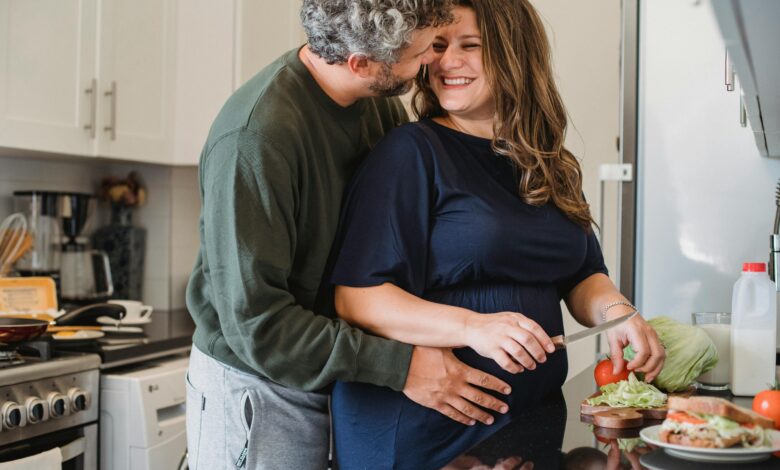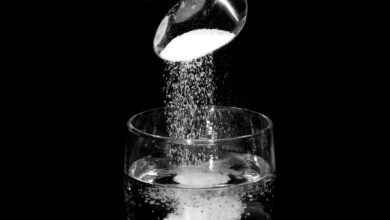Best Confinement Food for Post-Pregnancy

Best Confinement Food for Post-Pregnancy, The ideal confinement food for a postpartum woman is crucial for supporting her body’s healing and nutrition. Consuming foods high in vitamins, minerals, and nutrients is crucial for mending, reviving energy, and encouraging the production of milk.
It is strongly advised to eat foods abundant in fruits, vegetables, whole grains, lean proteins, and dairy products during this time. Furthermore, it’s said that traditional confinement foods like ginger, sesame oil, and Chinese herbs offer therapeutic qualities that aid with body warming and circulation promotion.
To support their general health and well-being as they heal from childbirth, new mothers should concentrate on eating meals that are readily digested and nourishing. New mothers may make sure their bodies are getting the fuel they need to heal and flourish during the postpartum phase by eating a balanced diet that includes a range of nutrient-rich foods.
Why Need To Be Careful With What You Eat After Pregnancy
For your own and your unborn child’s health, you must exercise mindfulness and caution when it comes to what you eat after pregnancy. For your body to heal from childbirth and facilitate nursing, it needs certain critical nutrients.
To support healing and nourishment, it’s critical to eat a balanced diet full of vitamins, minerals, proteins, and fiber. Reducing your intake of processed foods, sugar, and saturated fats will help you stay healthy overall and avoid gaining weight. Additionally, if you or your infant consume certain foods in excess, it may result in digestive problems or pain.
It’s also critical to maintain proper hydration throughout the day by consuming lots of water. All things considered, eating sensibly after becoming pregnant can support you in overcoming the challenges of parenting while maintaining your strength, energy, and health.
Nutritional Considerations for Post-Pregnancy Confinement Food
Foods high in protein, iron, calcium, and important vitamins and minerals should all be included in a confinement diet. Lean meats, eggs, and legumes are among the foods high in protein that can aid in muscle regeneration and tissue repair.
Fortified cereals, red meat, and leafy greens are among the foods high in iron that are essential for restoring iron levels that are lost during pregnancy and childbirth. Foods high in calcium, such as dairy and leafy greens, can promote bone health and guarantee enough calcium for nursing mothers.
In order to supply vital vitamins and minerals and fiber to help with digestion, fruits, and vegetables should also be included in the diet. In general, it is crucial to support the mother’s recuperation and general well-being during the post-pregnancy confinement period by concentrating on nutrient-dense foods.
What Is Confinement Food?
Confinement food, sometimes referred to as the postpartum diet, is a specific kind of meal meant to help support new mothers’ healing following childbirth. This age-old ritual is thought to support healing and general well-being, as well as assist restore essential nutrients lost during pregnancy and childbirth.
Confinement cuisine frequently consists of hearty, nourishing ingredients like ginger, sesame oil, and Chinese herbs that are believed to promote milk production, blood circulation, and wound healing. Confinement cuisine is a staple of postpartum care in many cultures, including Chinese and Malay, and is usually made by trained confinement meal providers.
To guarantee that new moms receive all the nutrients and support they require for their physical recovery and emotional well-being during the crucial postpartum time, these professionals meticulously choose ingredients and recipes.
Preparing Confinement Food at Home
Homemade confinement food can assist the body’s postpartum recovery process by carefully choosing nutrients that are easy on the digestive system. Soups, stews, and herbal teas are examples of traditional confinement foods that can supply vital nutrients and warmth to support general wellness and energy levels.
Making confinement food at home also enables new moms to customize meals to meet their own dietary needs and tastes, ensuring that they get the nutrition they require during this crucial recuperation time.
In addition to promoting their well-being, new mothers can strengthen their relationships with family members by cooking and sharing homemade confinement cuisine when they take the time to create wholesome and nutritious meals at home.
Conclusion
Food consumed in confinement is essential for supplying the body with the nutrition it needs, encouraging healing, and refuelling after delivery. For new mothers, there are a range of options available, including vegetarian or vegan options as well as traditional confinement food practices. It’s crucial to find a balance between following cultural customs and taking individual preferences for account while choosing between cooking at home or using confined food delivery services. Mothers can facilitate their recuperation process and improve their postpartum experience by giving priority to foods that are healthy and restorative.



